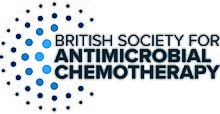The British Society for Antimicrobial Chemotherapy (BSAC) is a UK-based multi-professional organisation committed to preventing infectious diseases and tackling the growing threat of drug-resistant infections – one of the one of the top global public health and development threats.[1]
 | |
| Abbreviation | BSAC |
|---|---|
| Formation | 1971 |
| Purpose | Working to prevent infectious diseases around the world |
| Headquarters | Birmingham, United Kingdom |
President | Professor Andrew Seaton |
Former President | Dr David Jenkins |
CEO | Tracey Guise |
As one of the world’s largest networks of infection specialists, BSAC has thousands of members[2] and works with a wide range of stakeholders, including researchers, scientists, health care providers, policymakers, and industry leaders to support their work and help them reach a global audience.
On receiving BSAC's highest award, the Garrod Medal,[3] in 2021, Dame Sally Davies, the UK's Special Envoy on Antimicrobial Resistance, commented: "For fifty years, BSAC have been at the forefront of the global fight against AMR...enabling communities globally to be more than the sum of their parts."[4]
Activities
editCurrent BSAC activities include:
- Publishes the Journal of Antimicrobial Chemotherapy[5] and its sister publication, JAC-AMR.[6]
- Provides accreditation to hospitals as part of its Global Antimicrobial Stewardship Scheme (GAMSAS),[7] a programme of work that was used as a case study in the Government of the United Kingdom's National Action Plan on antimicrobial resistance, ‘Confronting antimicrobial resistance 2024 to 2029’.[8]
- Out-patient parenteral antibiotic therapy (OPAT) Initiative. The OPAT Initiative is involved in the development of a body of evidence that include good practice recommendations, a business case toolkit and a patient management system to support clinicians in the provision of parenteral antibiotics away from the hospital in-patient setting.[9]